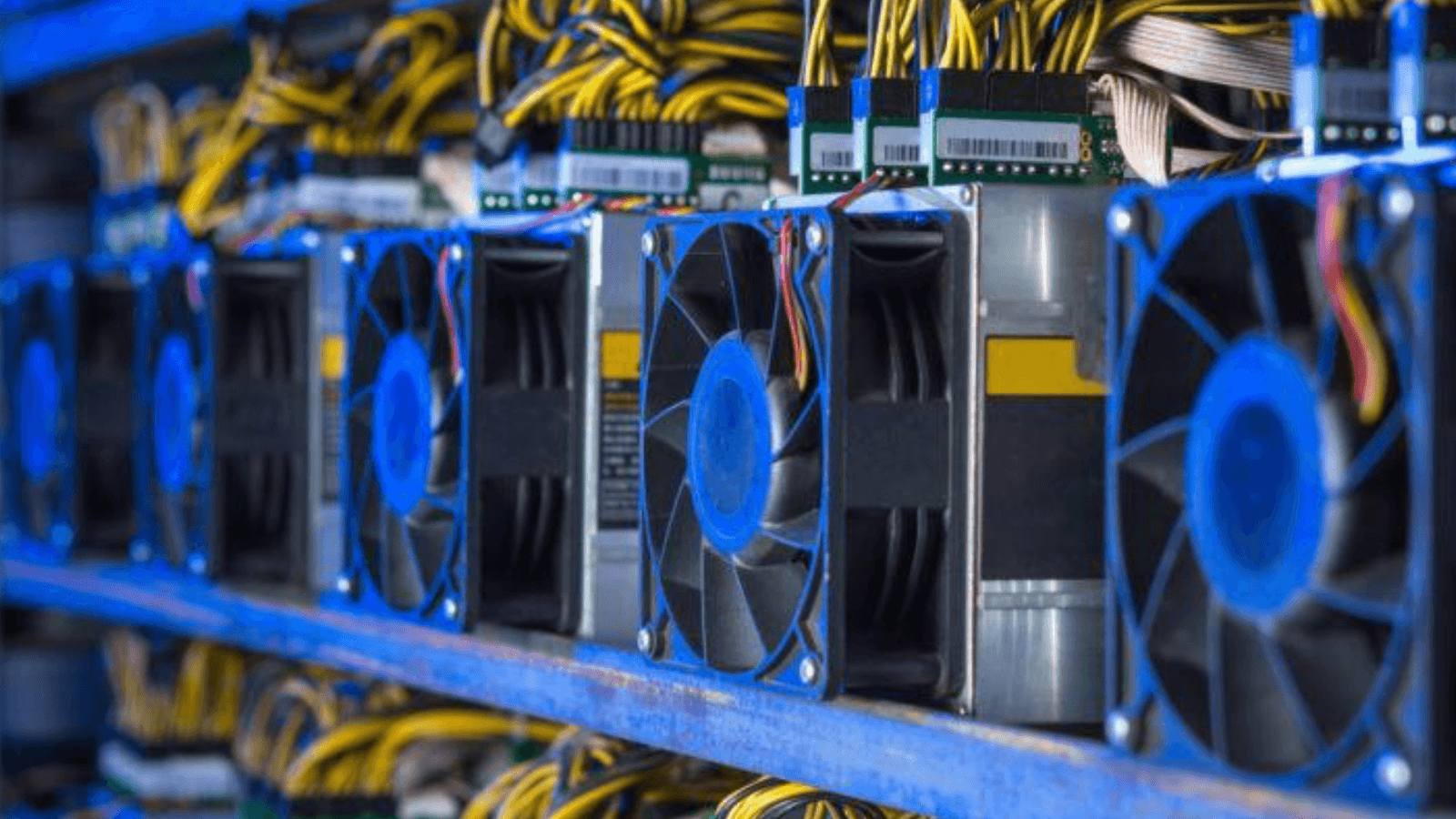Crypto Mining as an Entrepreneurial Endeavor
The science of crypto mining isn’t about spending computational energy. It’s about building the most efficient computational infrastructure.

Bitcoin mining farm | Source: Shutterstock
- Soluna Computing integrates the computational work of mining into its overall model of computing
- Proof-of-work blockchains such as Bitcoin have the potential to increase the efficiency and sustainability of the world’s electrical infrastructure
The science of crypto mining isn’t about spending computational energy. It’s about building the most efficient computational infrastructure. When you understand the science through this lens, crypto mining is really an entrepreneurial endeavor that will revolutionize data centers and move the world toward green energy.
As you may have heard, the mining industry has been the subject of much scrutiny for its proof-of-work energy consumption. But mining advocates argue these accusations are not fair, considering that they only account for 0.1% of global energy usage. But more importantly, they argue that mining is a paradigm changer. Its protocols incentivise innovations in green energy.
Crypto users, by no means, have escaped similar criticisms. Some have even gone as far as to suggest that they might be right-wing extremists.
Fortunately, we had a chance to sit down once more with the team at Soluna Computing to learn more about the realities of mining, minus the incendiary rhetoric.
Mining amid data center computing
Soluna is not a bitcoin mining company per se. Rather, they integrate the computational work of mining into their overall model of computing. Doing so provides benefits to their business endeavors and efforts toward sustainability.
“In our case, [mining is] a fully integrated solution to wasted energy and it’s really integrated in the sense that it monetizes itself right away. It allows us to pay for all of the infrastructure, electrical cost of buildings, etc., very quickly and then we can reinvest in that facility to put in more general-purpose equipment to go after these other markets,” CEO of Soluna Computing John Belizaire said. “So, mining is a really great catalyzer for the data center business we’re building. It’s also a great solution for the green energy problem. That’s why we invest in it, and we build it.”
John also had some things to say with regard to the factors would-be miners need to consider before setting up shop. There’s more to it than simply buying mining machines and plugging them in:
“So, if you’re self-miner, there’s a lot you have to do, you have to figure out how to source your power. Well, we do that by providing a service to the power generation companies. You have to run a multimillion-dollar construction project to build out a facility. You’ve got to negotiate very large complex relationships with vendors, everything from electrical to contractors, EPCs, and all the way up to the large mining companies that make the computing equipment. And if you’ve never done that before, it’s pretty challenging as an entrepreneur to figure that out.”
Mining alone involves bringing together a variety of factors, and as mentioned, mining is not Soluna’s sole endeavor.
The challenges of creating disruptive enterprises
Creating a business of any kind comes with plenty of challenges. But doing so in a brand new, disruptive way brings an added dimension of difficulty.
In response to the question, “What’s it like to start this kind of disruptive business?,” Belizaire used a provocative analogy after noting his 20 years of experience in this area: “The best way to describe it is, we’re all standing in a room, and we have to say, okay, I’m going to start pumping nitrogen into this room, and we all have to breath nitrogen from now on, and it’s the right thing to do. It’s going to make you stronger, actually, it might kill you, but it’s the right thing, and you’re like, what? Why is it good to breathe nitrogen? That’s what it’s like introducing a new disruptive technology, you have to convince people to change their whole perspective on the world.”
Doing something disruptive involves forcing a paradigm shift. To this end, a process of “missionary-style education” can be necessary, according to Belizaire. He went on to explain that “you have to help them see how the world is changing and the role that this technology will play in generating opportunities from that change.”
Proper education can result in the necessary paradigm shift, as people come to an understanding that goes beyond the mainstream narratives being pushed. As Belizaire puts it, “It’s a constant process of education. Many who are critical of bitcoin’s impact on the environment don’t see the bigger role it can play. Computing when housed in flexible data centers can be infrastructure, making it not just a power user, but an architectural resource for the grid. Computing is a better battery.”
In this way, mining can be beneficial for power grids and businesses that conduct other modes of computing. Far from a simple waste of energy, proof-of-work blockchains such as Bitcoin have the potential to increase the efficiency and sustainability of the world’s electrical infrastructure.
Check out Soluna’s newsletter for more insights into the acceleration of renewable energy through crypto mining.
This content is sponsored by Soluna Computing.
Get the news in your inbox. Explore Blockworks newsletters:
- The Breakdown: Decoding crypto and the markets. Daily.
- 0xResearch: Alpha in your inbox. Think like an analyst.






